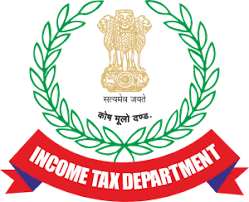Filing income tax returns (ITR) for individual taxpayers with salary income and one house property is not rocket science. The last date to file the ITR for the financial year 2022-23 (assessment year 2023-24) is July 31, 2023. As the last date to file ITR is approaching fast, it becomes all the more important that you take extra care while filing the ITR.
Tax experts are of the view that you file your returns well in advance to avoid mistakes that could prove costly later on. However, errors in ITR filing can be rectified by filing revised return but it takes extra time and effort.
Missing the deadline
Taxpayers may be subjected to several punitive measures if the return is not filed before the last date. This includes a penalty of up to Rs 10,000, an additional 1 percent tax on the unpaid taxes and a delay in receiving the excess tax.
Providing wrong information
While filing the ITR is mandatory, giving correct personal information in the forms is even more crucial. The details that need special attention are PAN details, e-mail ID, date of birth and IFSC code, and so on.
Using the wrong ITR form
Many taxpayers make the big mistake of using the wrong ITR form, which results in a rejected filing by the tax department. You, therefore, should carefully choose the right ITR form when filing your ITR.
Here are a few examples of ITR forms and who should use them:
ITR Form 1: Salaried individuals
ITR Form 2: Salaried individuals who have income from capital gains from investments
ITR Form 3: Self-employed individuals who have income from the profits of the business
Not checking the Form 26AS
Form 26AS contains vital information about your income, advance tax paid, Tax Deducted at Source (TDS), self-assessment tax paid, tax credits, and so on, making it an important document. Sometimes there could be a variance between the information in Form 26AS and the employer’s Form 16. So, relying totally on the details of Form 26AS, it is advisable to cross-check them with the information in Form 16 before filing your ITR.
Selecting the wrong Assessment Year
Taxpayers get confused between the ‘Assessment Year’ and ‘Financial Year’ when filing returns. The Financial Year stands for the year during which the income is earned. So, for the current filing, you need to choose the assessment year 2023-24.
Not mentioning all savings accounts
It is mandatory to disclose the details of all your bank accounts in the ITR, including foreign bank accounts, if any. Also, you are required to disclose the details of the bank account closed during the financial year.
Not mentioning income from all sources
It is necessary to mention additional income from other sources as well as your salary or business, including income in the form of rent from residential or commercial property, interest from fixed deposits, capital gains, and so on. Sometimes taxpayers do not disclose all of their sources of income and only provide income from their salary or primary business.
Exempted income
Taxpayers should disclose the exempted income. They need to mention all the income, even if it is not taxable. According to tax rules, the taxpayers are required to file an ITR if the gross income is more than Rs 2.5 lakh, regardless of exemptions.
Hiding details of capital gains
It is vital to disclose capital gains or losses in the ITR. The income from shares, property sales and so on comes under capital gains. If the taxpayer hides any such profit or loss, it may lead to a tax audit. For taxpayers’ ease, the I-T Department allows them to check their Capital Gains Statement.
Not verifying the ITR
Filing the ITR is a bit complex process, and mistakes are bound to happen. The I-T department notifies the taxpayer’s errors if it finds any. So, it is vital to verify the ITR to cut the chances of any errors.
Source: www.moneycontrol.com
***
Don’t miss the next GST Update / Article / Judicial pronouncement
Subscribe to our newsletter from FREE to stay updated on GST Law
Resolve your GST queries from national level experts on GST free of cost
TW Editorial Team comprises of team of experienced Chartered Accountants and Advocates devoted to spread the knowledge of GST amongst the various stakeholders.




